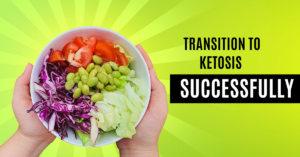Table of Contents
1. Introduction
Ever feel like your diet is a balancing act worthy of a circus performance? You’re not alone. Understanding the ins and outs of a balanced diet can seem like a high-wire act, but it doesn’t have to be.
A balanced diet is more than just a buzzword—it’s a cornerstone of good health. Imagine your body as a finely tuned machine that requires the right fuel to run smoothly. That fuel comes from a diet rich in essential nutrients that power everything from daily tasks to complex bodily functions. This post will guide you through the basics of a balanced diet, explore the vital nutrients your body craves, and delve into how your body burns calories, stores fat, and the factors that influence weight loss.
Stick around, and you’ll discover tips and insights to make eating well feel less like a chore and more like second nature. Ready to get started? Let’s dive in!
2. The Basics of a Balanced Diet
Understanding Food Groups
A balanced diet isn’t just about counting calories or fitting into your skinny jeans. It’s about nourishing your body with a variety of foods from different food groups. Think of these groups as the key players in a symphony, each contributing to the overall harmony of your health.
The main food groups include fruits, vegetables, whole grains, lean proteins, and healthy fats. Each group brings its own unique set of nutrients to the table, ensuring that your body gets everything it needs to function optimally. When you eat a variety of foods from each group, you’re more likely to meet your nutritional needs without over-relying on supplements.
Proportions Matter
Ever heard the saying, “too much of a good thing”? Even the healthiest foods need to be consumed in the right proportions. Overloading on one food group while neglecting others can throw your diet off balance. For instance, while whole grains are excellent for providing energy and fiber, consuming them in excess at the expense of vegetables or lean proteins can lead to nutrient imbalances.
It’s all about creating a plate that looks like a colorful palette of different foods. Aim for half of your plate to be filled with fruits and vegetables, a quarter with lean proteins, and the remaining quarter with whole grains. Add a dash of healthy fats, and you have a well-rounded meal.
The Role of Variety
Variety is not just the spice of life; it’s a crucial component of a balanced diet. Eating the same foods day in and day out can lead to nutrient deficiencies and make mealtime incredibly dull.
Different foods provide different nutrients, so mixing things up ensures you’re getting a broad spectrum of vitamins, minerals, and other essential nutrients.
Plus, trying new foods can be an adventure for your taste buds! Imagine the joy of discovering a new favorite dish that not only tastes great but also boosts your health. So go ahead, be a little adventurous in the kitchen.
Practical Tips for Balancing Your Diet

Balancing your diet doesn’t have to be a Herculean task. Start small and make gradual changes. For example, swap out that sugary breakfast cereal for a bowl of oatmeal topped with fresh fruit and nuts. Instead of grabbing a bag of chips, munch on a handful of almonds or carrot sticks with hummus.
Planning your meals ahead of time can also help you stay on track. Consider prepping your meals for the week on Sundays, so you have healthy options readily available. And don’t forget to read food labels; they can provide valuable information about portion sizes and nutrient content. These small steps can make a big difference in achieving and maintaining a balanced diet.
3. Essential Nutrients for Health
When it comes to fueling your body, the essential nutrients are the VIPs of the nutrition world. These nutrients are the building blocks that keep your body running like a well-oiled machine. They support everything from your immune system to your muscle growth, and even your ability to think clearly. Without them, you’d be like a car trying to run without gas. Let’s break down these superstar nutrients into digestible bits..
Carbohydrates: The Body’s Primary Source of Energy
- Function: Provide immediate energy.
- Sources: Grains, fruits, vegetables, legumes.
- Recommended Intake: 45-65% of daily calories.
Proteins: Essential for Growth and Repair
- Function: Build and repair tissues, and produce enzymes and hormones.
- Sources: Meat, fish, poultry, dairy products, legumes, nuts.
- Recommended Intake: 10-35% of daily calories.
Fats: Importance and Sources of Healthy Fats
- Function: Store energy, insulate and protect organs, and aid in vitamin absorption.
- Sources: Avocados, nuts, seeds, olive oil.
- Recommended Intake: 20-35% of daily calories.
But wait, there’s more! Vitamins and minerals are like the unsung heroes of the nutrient world. They might not provide energy, but they are essential for various bodily functions. Imagine trying to build a house without any tools—vitamins and minerals are those indispensable tools. They help in everything from bone health to blood clotting and even protecting your cells from damage.
- Vitamins: Essential for immune function, energy production, and cell repair.
- Key Vitamins: Vitamin C (ascorbic acid), Vitamin D, Vitamin B12.
- Sources: Fruits, vegetables, dairy products, fortified foods.
- Minerals: Important for bone health, fluid balance, and muscle contractions.
- Key Minerals: Calcium, potassium, iron.
- Sources: Dairy products, leafy greens, nuts, meat.
And let’s not forget about water—yes, plain old water. It’s easy to overlook, but vital for keeping you alive and kicking. Water is involved in nearly every bodily function, from flushing out toxins to aiding digestion and keeping your skin looking its best.
- Function: Maintain hydration, and support bodily functions.
- Recommended Intake: At least 8 cups (64 ounces) per day
By incorporating a variety of foods from all these nutrient groups into your diet, you’re setting yourself up for a lifetime of health and vitality. Eating well doesn’t have to be complicated. Think of it as fine-tuning the engine of your body to perform at its best. Enjoy the journey of discovering new foods and the benefits they bring to your health!
4. Carbohydrates: The Body’s Primary Source of Energy
Ever wonder why marathon runners load up on pasta the night before a big race? Carbohydrates are the body’s go-to fuel for energy, making them the MVP of your diet. When you consume carbs, your body breaks them down into glucose, which is then used to power everything from your morning jog to your late-night Netflix binge. Without sufficient carbohydrates, you might feel sluggish, cranky, and unable to perform at your best, whether in the gym or at work.
Not all carbs are created equal, though. While it might be tempting to grab that doughnut or sugary cereal, these are examples of simple carbohydrates. Simple carbs are quickly digested, leading to a rapid spike in blood sugar followed by an inevitable crash. Instead, aim for complex carbohydrates, which provide a more sustained release of energy. Foods like whole grains, fruits, vegetables, and legumes are rich in complex carbs and offer additional nutrients like fiber, vitamins, and minerals.
Balancing your carbohydrate intake is crucial to maintaining steady energy levels throughout the day. Here’s a quick guide to help you make better choices:
- Whole Grains: Think oatmeal, quinoa, and whole-wheat bread. These are packed with fiber and nutrients.
- Fruits and Vegetables: Nature’s candy! They offer natural sugars along with a host of vitamins, minerals, and antioxidants.
- Legumes: Beans, lentils, and peas are excellent sources of carbs and also provide a good amount of protein and fiber.
Remember, carbohydrates should make up 45-65% of your daily caloric intake. So, don’t shy away from them. Instead, embrace the right kinds of carbs to keep your energy levels stable and your body functioning at its best. Your body—and mood—will thank you!
5. Proteins: Essential for Growth and Repair
Proteins are like the building blocks of your body. Imagine them as the bricks and mortar that construct and repair everything from your muscles to your hair. They play a crucial role in maintaining the structure and function of tissues and organs. Without enough protein in your diet, your body would struggle to repair itself and maintain vital functions, leading to a host of health issues. Whether you’re recovering from an injury, striving to build muscle, or simply aiming to keep your body running smoothly, protein is non-negotiable.
Variety is the spice of life, and that’s especially true when it comes to protein sources. Think beyond the typical steak or chicken breast; proteins can come from diverse foods like fish, eggs, legumes, nuts, and seeds. Don’t forget about dairy products like yogurt and cheese, which also pack a protein punch. By incorporating a range of protein sources, you ensure your body gets a well-rounded nutrient profile that supports various bodily functions. Plus, mixing it up can make your meals more exciting and enjoyable.
But how much protein do you need? The answer can vary based on factors like age, activity level, and overall health. On average, it’s recommended that 10-35% of your daily caloric intake comes from protein. For someone who’s physically active or looking to build muscle, the higher end of that range might be more appropriate. Consulting with a healthcare provider or nutritionist can give you personalized insights into your protein needs, ensuring you get just the right amount for your lifestyle and goals.
Finally, it’s worth noting that quality matters just as much as quantity. Opt for lean proteins and plant-based options whenever possible to keep your diet balanced and heart-healthy. Consuming high-quality protein sources can help you avoid unnecessary saturated fats and other unhealthy elements. So next time you’re planning your meals, remember: you’re not just eating for today—you’re building and repairing for tomorrow.
6. Fats: Importance and Sources of Healthy Fats
The Role of Fats in Your Body
Fats often get a bad rap, but they play a crucial role in your overall health. Far from being the villain, fats are essential for providing energy, insulating your organs, and supporting cell growth. They also help your body absorb fat-soluble vitamins like A, D, E, and K. Imagine fats as the cushioning in a plush armchair—they make everything more comfortable and functional. So, don’t be too quick to cut them out of your diet completely
Types of Fats: The Good, the Bad, and the Ugly
Not all fats are created equal, and knowing the difference can empower you to make healthier choices. Healthy fats, such as monounsaturated and polyunsaturated fats, are your friends. These can be found in foods like avocados, nuts, seeds, and olive oil. On the flip side, saturated and trans fats are the ones you want to keep an eye on. These fats, found in fried foods, baked goods, and processed snacks, can increase your risk of heart disease when consumed in excess. Think of it like choosing your friends wisely—stick with the ones that uplift you!
Sources of Healthy Fats
So, where can you find these beneficial fats? Avocados, for one, are a fantastic source, packed with monounsaturated fats that can help lower bad cholesterol levels. Nuts and seeds are another great option; they’re not only rich in healthy fats but also provide protein and fiber.
Olive oil is a kitchen staple that’s heart-friendly, and fatty fish like salmon and mackerel are excellent sources of omega-3 fatty acids, which are crucial for brain health. Incorporating these foods into your meals can be as simple as adding a handful of nuts to your salad or cooking your veggies in olive oil.
Balancing Act: How Much Fat Do You Need?
While fats are essential, moderation is key. The recommended daily intake of fats should make up about 20-35% of your total calories. This might sound like a lot, but it’s all about balance. Too little fat can leave you feeling sluggish and deprive your body of essential nutrients, while too much can lead to weight gain and other health issues. Think of your diet as a tightrope walk—finding that sweet spot ensures you’re balanced and not tipping over to either extreme.
Practical Tips for Including Healthy Fats
Incorporating healthy fats into your diet doesn’t have to be complicated. Start by swapping out butter and margarine for healthier alternatives like olive oil or avocado oil. Snack on a handful of almonds instead of reaching for those chips. Add some chia seeds or flaxseeds to your morning smoothie for an added boost.
Making these small changes can have a big impact on your health, turning your diet from a monotonous march into a delightful dance.
Incorporate these tips, and you’ll find that adding healthy fats to your diet isn’t just a smart choice—it’s also a delicious one!
7. Vitamins and Minerals: Essential for Bodily Functions
Ever wondered why your mom always insisted you eat your veggies? It’s because they’re packed with vitamins and minerals, the unsung heroes of overall health. These tiny powerhouses are essential for countless bodily functions, from bolstering your immune system to keeping your metabolism in check.
Without them, your body would be like a car running on fumes—able to go a little way but nowhere near-optimal performance. Let’s dive into why these nutrients are so crucial and where you can find them in your daily diet.
The Vital Vitamins
Vitamins are organic compounds your body needs in small amounts to function correctly. They can be categorized into two groups: water-soluble and fat-soluble.
- Water-soluble vitamins include Vitamin C and the B-complex vitamins (like B6 and B12). These vitamins dissolve in water and are typically excreted through urine, so they need to be consumed regularly.
- Fat-soluble vitamins (A, D, E, and K) are stored in the body’s fatty tissues and liver. They are absorbed along with fats in the diet and can be stored in your body for later use.
The Mighty Minerals
Minerals are inorganic elements that also play a crucial role in bodily functions. They can be divided into two categories: macrominerals and trace minerals.
- Macrominerals include calcium, potassium, sodium, and magnesium. These are required in larger amounts and are vital for functions like bone health, muscle function, and fluid balance.
- Trace minerals—such as iron, zinc, and selenium—are needed in smaller quantities but are just as important. They support everything from oxygen transport (iron in hemoglobin) to immune defense (zinc).
Get Your Daily Dose
Incorporating a variety of foods into your diet ensures you get a complete array of vitamins and minerals. Here are some nutrient-rich options to consider:
- Fruits and Vegetables: Broccoli, spinach, strawberries, and oranges are great for vitamins C and K.
- Whole Grains: Brown rice and oats can provide B-complex vitamins.
- Lean Proteins: Fish, poultry, and beans can supply important minerals like iron and zinc.
- Dairy Products: Milk, yogurt, and cheese are excellent sources of calcium and Vitamin D.
So next time you’re planning a meal, think of it as an opportunity to fuel your body with the vitamins and minerals it needs to thrive. Not only will you feel better, but you’ll also be setting yourself up for long-term health and wellness.
8. Water: The Importance of Proper Hydration

Ever wonder why everyone keeps talking about the importance of drinking water? Think of water as the unsung hero of the nutrient world. It’s practically involved in every function your body performs. From regulating your body temperature to lubricating your joints and transporting nutrients, water is indispensable. Imagine trying to drive a car without any oil; that’s what your body would be like without proper hydration—creaky, inefficient, and prone to breakdowns.
You might be surprised to learn that your body is made up of about 60% water. That means if you’re not drinking enough, you’re depriving your cells of the hydration they desperately need to function correctly. Dehydration can lead to a host of problems, including headaches, fatigue, and even impaired cognitive function. Yes, not drinking enough water can make you less sharp!
But how much water should you be drinking? The age-old adage of “8 cups a day” is a good starting point, but it’s not one-size-fits-all. Your needs can vary based on factors like age, gender, activity level, and the climate you live in. For instance, if you’re sweating bullets in a hot gym, you’ll need more water compared to someone lounging in an air-conditioned room. Pay attention to your body’s signals—if you’re thirsty, that’s a clear sign you need to sip some water.
Let’s bust a common myth: drinking water doesn’t just come from, well, drinking water. Fruits and vegetables like cucumbers, oranges, and strawberries are also excellent sources of hydration. Incorporating these into your balanced diet can help you reach your hydration goals without feeling like you’re constantly gulping down glasses of water. It’s a tasty and nutritious way to stay hydrated.
Finally, consider this a friendly reminder that caffeinated and alcoholic beverages don’t count toward your hydration goals. In fact, they can be dehydrating. So, while that cup of coffee or glass of wine might be refreshing, they shouldn’t replace your water intake. Stick to water, herbal teas, and water-rich foods to keep your body running like a well-oiled machine. Cheers to staying hydrated!
Incorporating adequate water intake into your balanced diet is essential for overall health and well-being.
9. Factors Affecting Weight Loss

When it comes to shedding those extra pounds, it’s easy to get overwhelmed by the sheer number of factors that can influence your progress. You might be tempted to think it all boils down to diet and exercise, but oh, there’s more to the story. Genetics, medical conditions, gut health, mental health, and even your sleep patterns all play crucial roles in your weight loss journey. Let’s break it down and explore how each of these elements can impact your efforts.
First up, genetics. Ever wonder why some people seem to eat whatever they want and never gain an ounce, while others need to watch every calorie? Your genes can influence how your body responds to hunger cues, how efficiently you burn calories, and how much fat you store. While you can’t change your genetic makeup, understanding its role can help you tailor your approach to a balanced diet and exercise plan that works best for you. Knowledge is power, and in this case, it’s the power to manage your expectations and strategies effectively.
Another key player is your medical history. Conditions like thyroid disease or Polycystic Ovarian Syndrome (PCOS) can make weight loss feel like an uphill battle. Not to mention, certain medications like steroids or antidepressants can lead to weight gain as a side effect. If you suspect a medical condition is thwarting your weight loss efforts, it’s essential to consult with a healthcare provider. They can offer guidance and possibly adjust your treatment plan to better support your goals. After all, fighting an invisible battle is never fun, especially if there’s a way to level the playing field.
Last, but certainly not least, consider the mental and emotional aspects. Your gut health, mental well-being, and sleep quality all have a significant impact. An unhealthy gut can mess with your metabolism and nutrient absorption, while anxiety and depression can lead to emotional eating and a lack of motivation to get moving. Sleep deprivation messes with your hunger hormones, making you crave high-calorie comfort foods. Addressing these factors holistically can make a world of difference. Prioritize good sleep, seek help for mental health concerns, and consider a diet that promotes a healthy gut. Your body—and mind—will thank you.
Understanding a balanced diet and how your body uses nutrients can make healthy eating feel less like guesswork and more like a science. A balanced diet includes the right proportions of carbs, proteins, fats, vitamins, minerals, and water. Each of these nutrients plays unique roles in keeping you healthy and energized. By knowing how calories are burned and what factors influence weight loss, you can make informed choices that support your health goals.
Your body is an incredible machine, capable of amazing feats when fueled properly. By incorporating a balanced diet into your routine, you can ensure that you’re providing your body with the nutrients it needs to function optimally. So, embrace the journey, enjoy the process, and remember: eating well can be both delicious and satisfying. By focusing on a balanced diet and understanding the various factors that influence weight loss, you can create a sustainable path to achieving your health goals.
Read Also: 7 Delicious Easy Breakfast Foods to Kickstart Your Weight Loss Journey!




